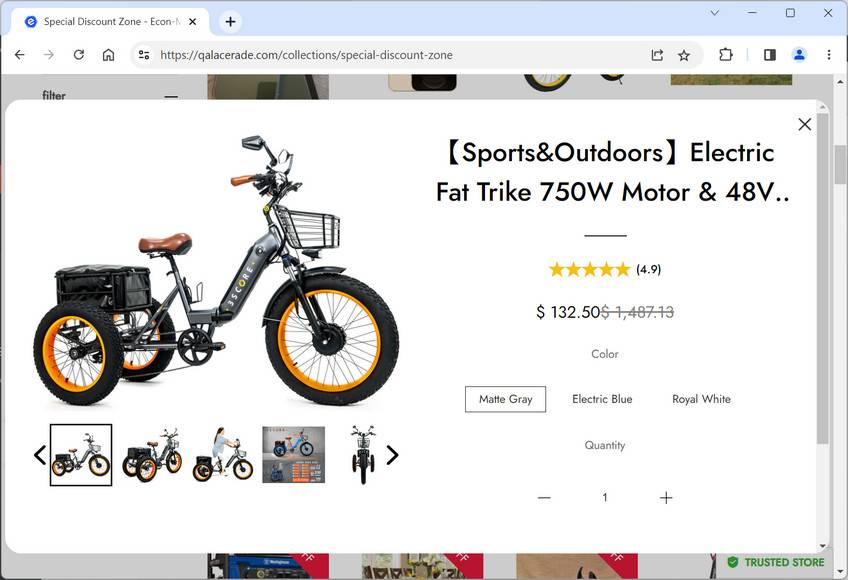Online shopping is a convenient and popular way to buy goods and services, but it also comes with some risks. One of them is falling victim to scam sites that pretend to sell legitimate products, but in reality, they are either fake or non-existent. In this blog post, we will discuss one of these scams, the Econ-Market shopping sites scam, and how to avoid it.

What are the Econ-Market shopping sites scam?
The Econ-Market shopping sites scam is a scheme that involves creating fake online stores that claim to sell various products, such as electronics, clothing, jewelry, toys, and more. These sites are usually named after a generic product category, such as econ-market.com, econ-market.net, econ-market.shop, etc. They are promoted via spam email and posts on social media platforms like TikTok, Facebook, or Instagram.
How do the Econ-Market shopping sites scam operate?
The Econ-Market shopping sites scam operate by luring unsuspecting online shoppers with attractive prices and discounts. The products they offer are often branded or popular items that are in high demand. However, these products are either counterfeit or do not exist at all. Once the customers place their orders and pay with their credit cards or other online payment methods, they either receive nothing or a low-quality item that does not match the description. The scammers then ignore any complaints or requests for refunds from the customers. They may also use the customers’ personal and financial information for identity theft or fraud.
What to do if you have fallen victim?
If you have fallen victim to the Econ-Market shopping sites scam, you should take the following steps as soon as possible:
- Contact your bank or financial institution and report the fraudulent transaction. Ask them to cancel your payment and refund your money. You may also need to change your card details or account passwords to prevent further unauthorized charges.
- Report the scam site to the authorities and consumer protection agencies in your country. You can also file a complaint with the Better Business Bureau (BBB) or Trustpilot.
- Warn your friends and family about the scam and advise them not to shop at these sites. You can also share your experience on social media or review sites to expose the scammers and prevent others from falling for their tricks.
Conclusion
The Econ-Market shopping sites scam is a serious threat to online shoppers who are looking for bargains and deals. These sites are designed to deceive and defraud customers by offering fake or non-existent products. To avoid becoming a victim of this scam, you should always be careful and vigilant when shopping online. Here are some tips to help you:
- Do your research before buying from an unfamiliar site. Check the domain name, contact details, reviews, ratings, policies, and security features of the site. Look for signs of legitimacy, such as a valid SSL certificate, a clear return policy, and customer service channels.
- Compare prices and products from different sources. If a site offers a product that is too good to be true, it probably is. Be wary of extremely low prices, unrealistic discounts, or limited-time offers that pressure you to buy quickly.
- Use secure and reliable payment methods when shopping online. Avoid paying with cash, wire transfers, gift cards, or cryptocurrencies, as these are difficult to trace or recover. Use credit cards or online payment services that offer protection and dispute resolution in case of fraud.
We hope this blog post has helped you understand what the Econ-Market shopping sites scam is and how to avoid it. Stay safe and happy shopping!




